Tuesday, March 26, 2019 – 14:36
Cascadia Research’s first Hawai’i field project of 2019 was based off Maui, from March 11-17, 2019. This project was the start of the 20th consecutive year of this study on Hawaiian odontocetes, although this effort was a bit different from most, as we were spending a lot of time also working with humpback whales (in conjunction with a film crew) primarily in the shallow waters of the Au Au channel. While the humpback focus may be surprising to long-term followers of our Hawai’i research, the first funding for the Hawai’i research effort (in 2000) was actually to work with humpback whales, a study examining their sub-surface and night time behavior. It was this early funding which allowed us to start the research on several species of odontocetes. The shallow waters of this area host only four species of odontocetes, and we were able to encounter all four during the project.
The crew for this project included Brittany Guenther, Jordan Lerma and Robin Baird, with help from Lee James, Lynn Padilla, David Reichert and Trent Ellis. For this project we used the Aloha Kai, provided by Ultimate Whalewatch.
By far the highlight of the week was an encounter with Cluster 4 of the endangered main Hawaiian Islands population of false killer whales. We were able to get identification photos of about 20-25 individuals, collected four biopsy samples for studies of genetics, aging, and hormone chemistry, collected three breath samples for a study of the respiratory microbiome, and obtained some beautiful GoPro and Drone footage of the group.
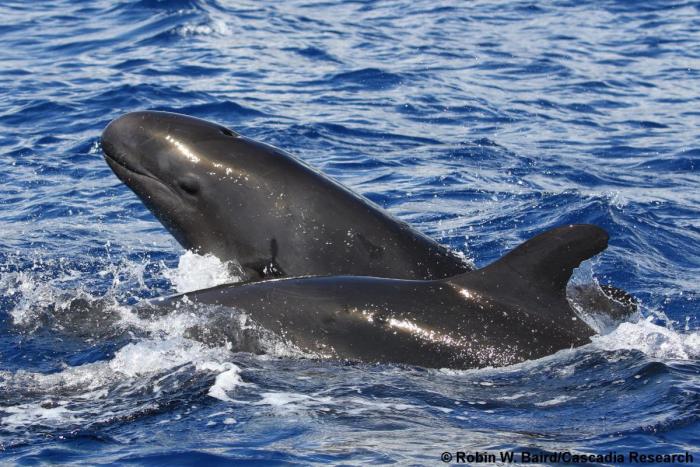
False killer whales from Cluster 4 of the endangered main Hawaiian Islands population.
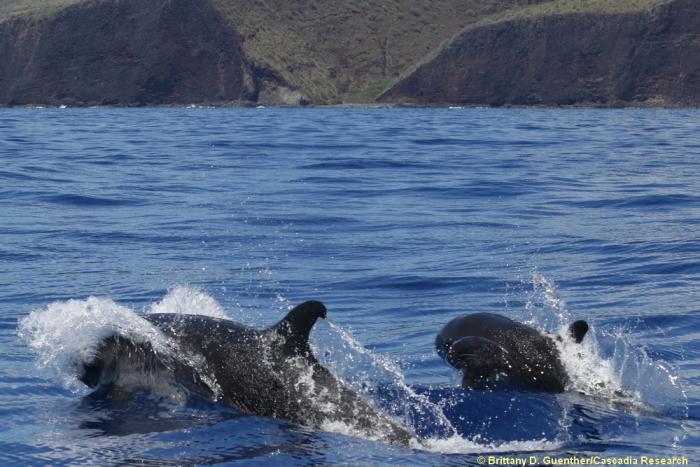
Fast moving false killer whales!
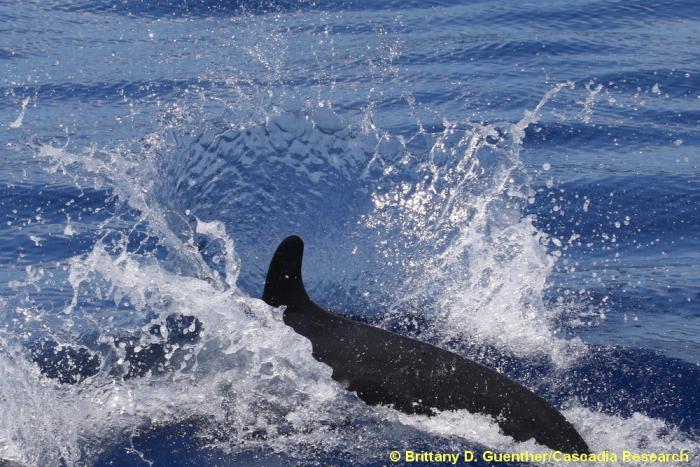
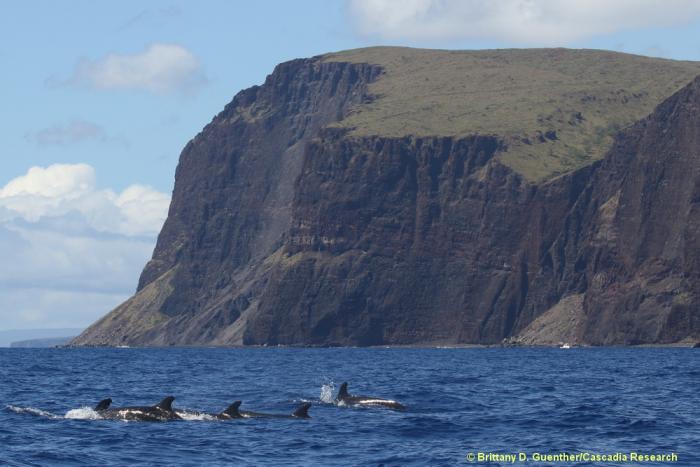
False killer whales passing the cliffs off southwest Lāna‘i
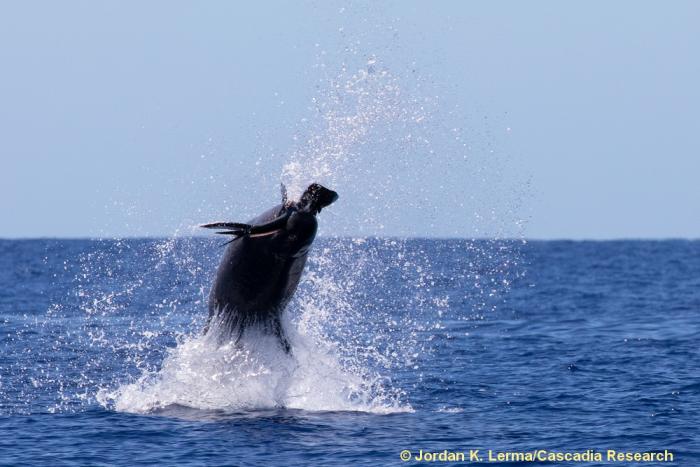
We also witnessed at least three predation events, this one on a mahimahi
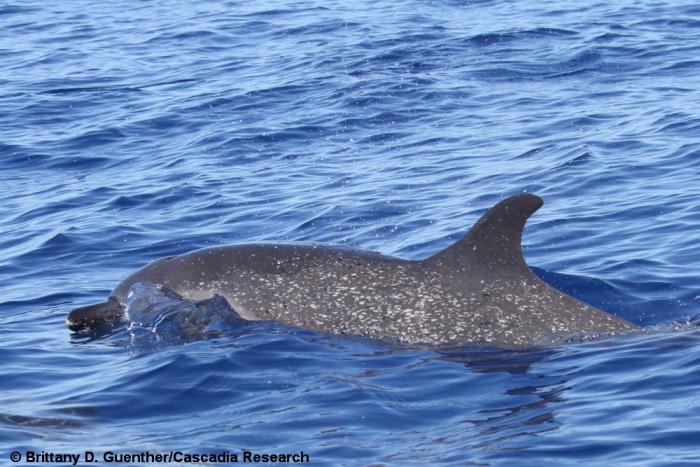
An adult pantropical spotted dolphin shows the complex spotting patterns of this species. One of the few species we do not have a Hawai’i photo-identification catalog of (we have catalogs of 13 species from Hawai’i), although we are collecting photos for the eventual creation of a catalog, as there are a lot of questions about stock boundaries and fisheries interactions with this species in Hawaiian waters.
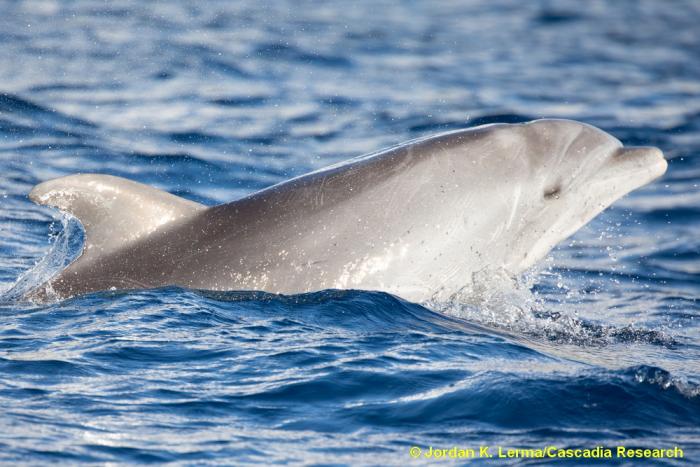
As well as false killer whales, we also encountered two groups of bottlenose dolphins and were able to obtain identification photos to add to our photo-ID catalog for this species. There is a small resident population of bottlenose dolphins in the Maui Nui area, with some movements between Maui Nui and O’ahu, so these photos will help us better understand the interactions between these two communities.
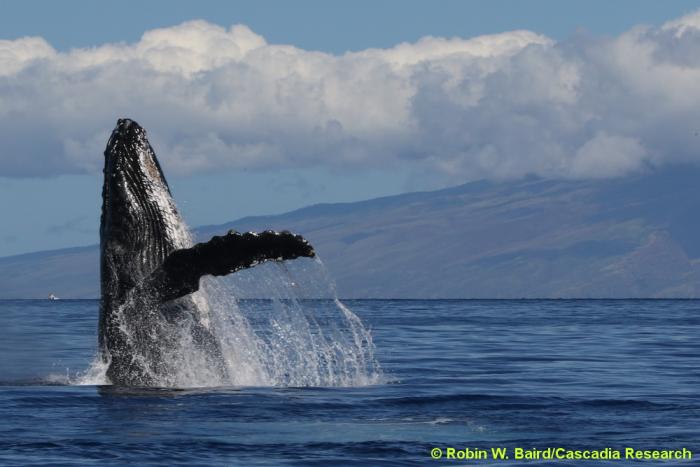
Spending most of our time off west Maui we had dozens of encounters with humpback whales.This one has a large bite out of it’s flipper, likely from a shark attack.
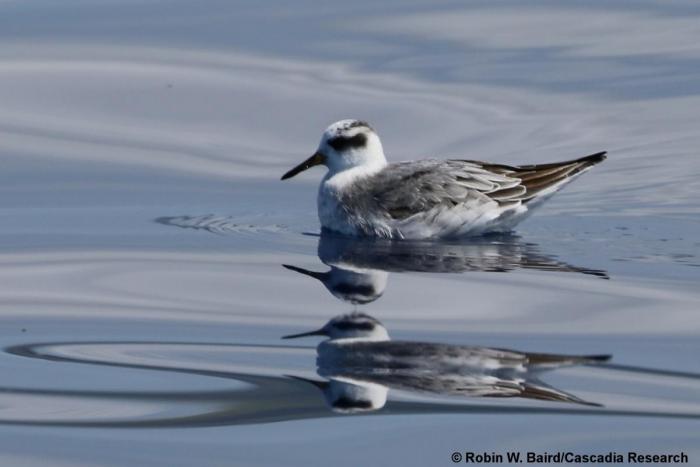
We also photograph any unusual birds we see while on the project – the most interesting sighting of the trip was a Red Phalarope, a winter visitor to Hawai’i. For more information on birds we encounter check out our seabird page and the “Birds of the Hawaiian Islands” accounts at the Bishop Museum.
Photos on this page were taken under NMFS Permit No. 20605. Contact Robin Baird (rwbaird “at” cascadiaresearch “dot” org) for more information